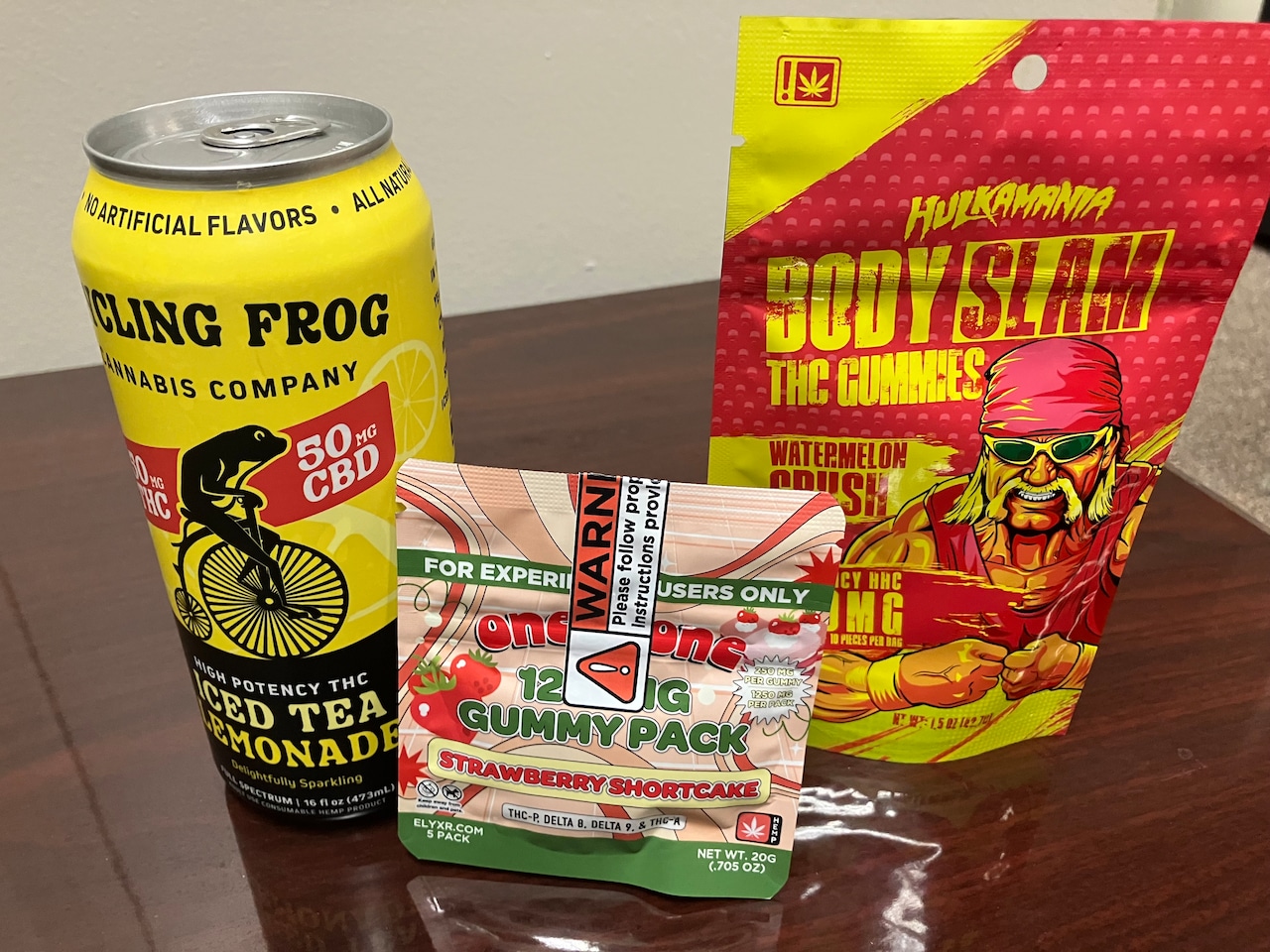Alabama’s new law to restrict products with THC derived from hemp has critics who call it a government overreach that will unnecessarily hurt businesses that sell the products and their customers.
Others contend the new law does not go far enough.
Even before it takes effect next week, there is already a proposal to clamp down further.
A bill by Sen. April Weaver, R-Brierfield, would classify THC taken from hemp as a controlled substance, banning the products entirely.
THC is the main psychoactive ingredient in marijuana, which is illegal in Alabama.
Gummies, smokables, vapes, drinks, and other products with THC from hemp, however, have been legal in Alabama and other states and sold in convenience stores, specialty shops, and online.
“Just because a substance is easily accessible doesn’t mean it’s safe,” Weaver said.
“I have heard first-hand from so many of my constituents how these drugs have had a terrible effect on their children and their families.
“I think we just need to continue the conversations and help people understand the safety impact that these high-potency psychoactive THC products have on our communities.”
Weaver is a registered nurse who was a regional director for the Department of Health and Human Services during the first Trump administration.
Her bill, SB1, is the first one introduced for next year’s legislative session, which starts in January.
Weaver sponsored a similar bill this year, but it did not advance.
Instead, the Legislature passed HB445 by Rep. Andy Whitt, R-Harvest, and Sen. Tim Melson, R-Florence. It imposes substantial restrictions but allows some THC products to remain on the market.
HB445 bans smokable hemp, high-potency gummies, and synthetically produced forms of THC, including Delta 8 and Delta 10. It bans online purchases.
It requires licensing by the Alcoholic Beverage Control Board and new rules for product contents, testing, packaging, and serving sizes, and establishes civil and criminal penalties.
Birmingham Mayor Randall Woodfin opposes the new law and called on Gov. Kay Ivey to call a special session to repeal it.
“Unless it’s fixed, hundreds of businesses across Alabama will be forced to shut their doors in just eight days,” the mayor posted on Facebook.
Ivey’s office told AL.com that the governor, who signed HB445, has no plans to call a special session about it.
The bill’s sponsors, Whitt and Melson, called HB445 a compromise that would put guardrails on an unregulated business that posed risks for the public and for children.
Hemp shop owners and others said they were not opposed to regulations, and strict penalties for sales to minors, but said HB445 was an overreach for products they said are safer than alcohol and tobacco for minors.
They said customers will still find ways to get the products from sources outside Alabama because many depend on them for help with pain, sleeplessness, and other problems.
Others, including the Alabama Policy Institute, said HB445 did not go far enough.
They support a ban, as Weaver has proposed, saying the products emerged because of a loophole in the law that legalized hemp for farmers in 2018, a law they say was not intended to market buzz-inducing THC.
Weaver said there are many moving parts in the debate over hemp-based THC, including proposals in Congress. She said Alabama lawmakers need to stay involved.
See also:
“When it comes to morals, values, and protecting our children from gateway drugs, Alabama will lead the way to avoid repeating the mistakes that other states have made,” Weaver said.
“As a conservative and a fighter and someone who has spent their background in healthcare, I have a history of carrying bills that address drug awareness and prevention.”
In March, the Legislature passed Weaver’s bill to restrict sales of nitrous oxide cylinders, sometimes called whippets, which have legitimate purposes but are also misused as an inhalant to produce a brief high, a practice that carries serious health risks.
Weaver’s new bill would not ban all consumable products made with ingredients from hemp.
Cannabidiol, or CBD, a non-psychoactive ingredient in hemp that is used in many products, would still be legal.
SB1 says that products containing CBD – gummies, tablets, capsules, tinctures, gels, oils, and creams – could only be sold at pharmacies certified by the State Board of Pharmacy for that purpose.
“When it comes to morals, values, and protecting our children from gateway drugs, Alabama will lead the way.” Read More


